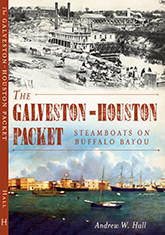Stonewall Jackson’s “Regiment of Free Negroes”
 Within the smoke-and-mirrors, ignore-that-man-behind-the-curtain game that constitutes advocacy for black Confederate soldiers, one often comes across the claim that Stonewall Jackson commanded two battalions of African American troops. It pops up all over the place, including (briefly) in grade school textbooks in the Old Dominion. Remarkably, with 27 bazillion books published to date on the Civil War, and a fair number of those specifically about Ol’ Blue Light himself, no one’s ever bothered to name those two battalions by their official designation, identify their officers, or point them out on the order of battle for a specific engagement.
Within the smoke-and-mirrors, ignore-that-man-behind-the-curtain game that constitutes advocacy for black Confederate soldiers, one often comes across the claim that Stonewall Jackson commanded two battalions of African American troops. It pops up all over the place, including (briefly) in grade school textbooks in the Old Dominion. Remarkably, with 27 bazillion books published to date on the Civil War, and a fair number of those specifically about Ol’ Blue Light himself, no one’s ever bothered to name those two battalions by their official designation, identify their officers, or point them out on the order of battle for a specific engagement.
I’m not sure where the claim about these battalions originated, but it may be at least in part based on this news item from the front page of the Philadelphia Inquirer of November 27, 1861:

FROM THE UPPER POTOMAC POSITION OF THE REBELS — A FREE NEGRO REGIMENT A letter from Darnestown, Md., dated to-day, says. . . . Gen. JACKSON, who, as Colonel, formerly commanded at Harper’s Ferry, is engaged at Winchester in organizing, arming, and equipping a regiment of free negroes [sic.], said to number fully a thousand. The negroes are reported to be very enthusiastic in their new position.

Rumors and second-hand accounts of African American troops in Confederate service appeared frequently in Northern newspapers, especially during the early part of the war. We’ve seen how a single mention of black troops — from a source that seems dubious to start with — got rewritten and embellished and recycled, over and over, for weeks after the Battle of First Manassas. That one took in a lot of people, including (it seems likely) Frederick Douglass.
So now we’ve got a date (November 1861) and a location (Winchester, Virginia), for at least one (anonymous, second-hand) account of Jackson’s black troops. Anyone who has further details on this regiment — its commanding officer, its official designation, the actions in which it fought, or citations to it in Confederate sources, please drop it in the comments.
I have Fold3 open and waiting.
___________






The silence is deafening!
Andy, I’d love to cross-post this on my site. Unfortunately WordPress does not recognize my username or password, so I have been unable to sign in or post anything.
Marc, please feel free to cross-post any time you like.
One of the reasons I post copies of the most mundane, minutia that appear in the Citizens Files is to dispel the myth the Confederacy was not good at keeping records. If receipts for horse shoes survived in the archives, then you’d think these black Confederate soldier service record files would be bulging…
Pretty hard to lose a whole regiment.
Andy, didn’t General Lee lose a couple along the way?
I think the basis for “Jackson’s Negro battalions” is the Steiner account.
That one’s a mess, too. But I’m not sure, as Steiner doesn’t suggest stand-alone black units.
No, he doesn’t, but he places blacks in Jackson’s column, which has allowed others to morph them into a couple of battalions of combat troops.
It’s funny how when pointing out the obvious first hand accounts, you poo poo them… The Steiner account says they were an a integrated part of Jackson’s unit, numbering at least 3000…. That is 2 battalions to me…
The account is aweful specific, covering what they wore, what weapons they were carrying etc…
But there are single handed account as well… Harpers weekly January 1863 Battle of Fredericksburg, Rebel Negro Pickets….
Even if ALL of the blacks who served in the confederate army were “cooks and body servants” Surely they were part of the army… Many received pensions….
Ill also point out a famous picture of the Antietam dead, there is NO doubt that there is an black confederate in that picture…
Why is there such a resistance to black confederates? Because it questions the idea that slavery was a condition of the times but not a cause of the war…
I don’t think I’ve “poo-pooed” anything. To the contrary, I’ve taken them very seriously — seriously enough to take the time to look at them in detail and explain why some of the most common claims made on behalf of black Confederates are either outright false, or misrepresented. Believe me, simply “poo-pooing” them would’ve saved me a lot of time and typing.
Which picture? Show me.
“Part of the army” is a nebulous, ill-defined term, like “served.”. The civilian employees who work in the mess hall and do maintenance work at Fort Hood are arguably “part of the Army,” necessary and valued, but they’re not soldiers.
I’m still waiting for a specific citation for Stonewall Jackson’s regiment.
You ask, “why is there such a resistance to black confederates?” My response would be, “why is there such determination by some today to show that there were black Confederate soldiers, when real Confederates 150 years ago scoffed at the idea?”
“Why is there such a resistance to black confederates? Because it questions the idea that slavery was a condition of the times but not a cause of the war…”
This statement reveals the true purpose behind those pushing the myth of the black Confederates. It is simply a cover for their desperate attempt to try to prove that the Confederacy was not fighting to defend slavery. If they can remove slavery as a cause of the war, it removes a severe tarnish from the Confederacy’s reputation. If they can prove the ludicrous charge that blacks fought side-by-side with whites in defense of the Confederacy, it goes one step farther and actually proves that the South was indeed a racially egalitarian society, or at least more so than the North. The fact that they rely on such ludicrousness in the face of overwhelming historical evidence to the contrary proving beyond a doubt that not only were there no black Confederates but also that the war was indeed about slavery. The men who wrote the secession ordinances at the various state secession conventions certainly thought so, as did Alexander Stephens at the time, his backpedaling years after the war notwithstanding. I close with that horrible, awkward quote, sir:
“Our government is founded upon the great truth that the negro is not equal to the white man.” — Alexander Stephens, Vice President of the Confederacy, 1861
Sounds like the kind of government blacks would flock to support, huh?
folks did not read the constitution then any more than now, they had personal and financial considerations Try reading another black man who was there, GW Williams, but if you cant believe Douglas why listen to black historians?
Thanks fro taking time to comment.
Please note that Douglass is spelled with two Ss.
Regarding George Washington Williams, he was not “there” to observe at first hand African Americans in Confederate military service. He was only twelve when the war began, and while he served as a U.S. soldier later in the war, there’s nothing I know of in his writing that suggests any personal knowledge of the subject on his part. He does make a generalized comment in his History of the Negro Race about local authorities in Confederate states enrolling black men as soldiers, but it’s literally just a single sentence, without any example or citation aside from a two hearsay accounts from Richmond and New Orleans. These don’t really establish much of anything in terms of historical evidence.
Andy,
It appears to me, unless evidence is found on an approved, SCV Camp website or “Black Confederate Soldier” blog, we are not going to see any form of hard research, evidence, first-person sources, muster rolls, etc., because belief is so much easier than actual research.
Tell me you are surprised. 🙂
Sincerely,
Neil
Perhaps this was part of the extensive propaganda and disinformation arms of the wars, that were employed by both Union and the CSA.
This one was to terrify white people in the United States with the whole idea of armed black men coming to invade, so why don’t we just call the whole thing off and let the (white) CSA have their way with us so they don’t turn the black CSA on us instead?
I dunno. This theory may have no ground to stand on.
I don’t have any first-hand accounts of Jackson’s black regiment but I think it is fairly obvious why any Confederate General never would have engaged in ,”organizing, arming, and equipping a regiment of free negroes” – there was too great a chance of this “negro regiment” running for freedom, turning on their “Superiors”, or both. “Why is there such a resistance to black confederates?” The answer here is also obvious: historical records and common sense don’t support this theory.
AH-
“I’m still waiting for a specific citation for Stonewall Jackson’s regiment.”
No, there wasn’t a regiment of blacks in Stonewall’s corps.
But.
There were probably a regiment’s worth of enlisted blacks within that corps.
Black men were not allowed to enlist in the Confederate armed forces until March 13, 1865. Even so, they were only able to raise a company or two’s worth. Your argument in invalid, sir.
Mark, thanks for the comments. PLease just keep in mind that Billy and BR are following the standard script here. It’s not so much personal as contractual.
And my contract states I get paid big bucks for following that script lol!
Come on Andy my friend, I ain’t the one beating that drum. However I do
agree that anyone who took a gun and shot the enemy was just as much a soldier
as any person, be it enlisted, partisan ranger, guerilla…
I am not into numbers, but there were ‘Black Confederate Soldiers’ be it 1 or 90,000.
That Collier fellow who helped Roosevelt bag his Teddy Bear comes to mind
Your interpretation of that law is invalid.
You just wrote a check you’re never going to be able to cash.
Advocates for black Confederates routinely throw around phrases like “served” and “in the army” when describing the role filled by these men. Those are somewhat vague terms that can be understood different ways. Sometimes people do this because their own understanding of the matter is a bit muzzy, and sometimes (I believe) they know better, but do so intentionally to elide genuine distinctions of status that were crucial at the time, but now would undermine their case.
But you’re smarter, and have been at this longer, to know that to say someone is “enlisted” is a very real and specific thing. You know this. It conveyed a specific legal status then, just as it does now. Someone who is “enlisted” in a military force has official status, has rank, and a legal commitment to the government beyond that of being a civilian employee. Above all, there will be records, and lots of them. (Confederate personnel records get very spotty in the last year or so of the war, but we’re talking about the fall of 1861 here.)
So I’ll be happy to see what records you find — “a regiment’s worth,” more or less. Good hunting, BR — you’ve got your work cut out for you. 😉
Theoretically, I’m trying to figure out how the Union would have handled a captured black, Confederate soldier.
– Parole him back to the south?
– Grant him absolute freedom and a life in the north?
– Put him in Union blue?
It would have generated a huge amount of debate and policy generation.
There are a number of cases of African American non-combatant who got swept up with Confederate soldiers and thrown into the pen with all the rest. Sometimes they stayed, sometimes they made their status as enslaved persons known and were released. And very often they (like everyone else) got tangled up in the bureaucracy. One well-known “black Confederate” advocate quoted from a book on Camp Douglas, supposedly to show that a black servant held there had not been released as a former slave, but was held as a prisoner because the Federal authorities had determined that he was a bona fide soldier. This, she argued, was evidence that enslaved personal servants were deemed Confederate soldiers by the Union military. Unfortunately, the very next lines of the book she was quoting from verify that the prison camp did, after months of dragging their heels, determine the man was a slave, and released him on exactly those grounds by order of the Secretary of War. It’s one more example of the shoddy research that underlies the claims made for “black Confederates.”